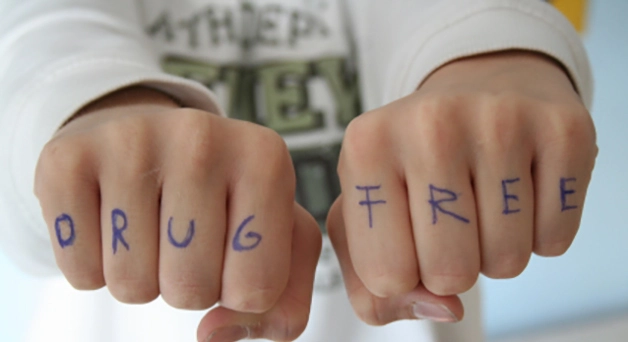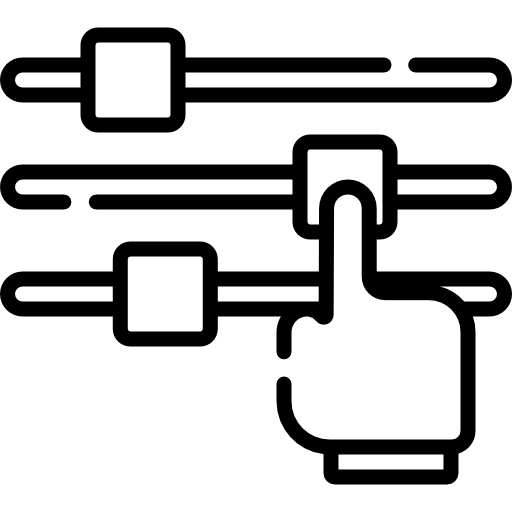
Substance Abuse Treatment/ Drug Abuse Control in Mesa, Arizona
If you or someone you care about is struggling with substance use or excessive drug use, seeking treatment is crucial for improving physical, mental, and emotional health. Substance abuse affects millions in the United States and can lead to serious harm. Every individual’s journey with substance use is unique, so personalized addiction treatment is essential.
At Foothills Psychiatric Clinic in Mesa, Arizona, board-certified psychiatric mental health nurse practitioner Simon George and our skilled team offer counseling and treatment for substance abuse and drug addiction. We provide mental health services to improve:
– physical well-being
– mental health, and
– interpersonal relationships
We provide both Telehealth and in-person consultations for mental health and substance abuse treatment in Mesa and nearby locations in Arizona. To schedule a consultation, please contact our office.
Substance Abuse/Drug Addiction Treatment & Counseling- Common Questions & Answers
What is Substance Abuse or Drug Addiction?
Substance use disorder is a medical condition characterized by ongoing substance use, or drug use, leading to significant mental, physical, and emotional challenges. These difficulties may include absenteeism from work or school, using substances in risky situations like driving, legal issues, or strained relationships.
Recognized as a genuine medical condition that affects the brain. Substance use disorder involves the misuse of both illegal and legal substances. Examples of illegal substances include marijuana, heroin, cocaine, or methamphetamine, while legal substances encompass alcohol, nicotine, or prescription drugs. Alcohol, in particular, is prevalent in substance use disorder cases.
While occasional use may not pose significant risks, addiction to these substances or drugs requires immediate attention. Seeking help from a substance abuse treatment clinic and mental health provider is essential. Foothills Psychiatric Clinic in Mesa, AZ offers evaluation, counseling, and treatment for alcohol and drug addiction.
What Substances/drugs are associated with substance use disorder?
Substances or drugs that can get people addicted to its usage are:
– Alcohol
– Marijuana
– Prescription medicines, such as pain pills, stimulants, or anxiety pills
– Methamphetamine
– Opiates
– Cocaine
– Hallucinogens
– Inhalants
What are Drug Addiction or Substance Abuse Symptoms?
The following behaviors are commonly linked with drug, alcohol, or other substance use, although each person may display variations in signs. Symptoms can include:
- Feeling a constant need to use the drug, whether daily or multiple times a day
- Experiencing intense cravings for the substance that dominate thoughts
- Using larger amounts of the drug for longer periods than intended
- Needing more of the drug over time to achieve the same effect
- Ensuring a steady supply of the drug is always available
- Neglecting responsibilities or reducing participation in social activities due to drug use
- Continuing drug use despite awareness of its negative impact on life or health
- Engaging in unusual behaviors, such as theft, to obtain the drug
- Spending significant time acquiring, using, or recovering from the drug’s effects
- Struggling to stop using the drug despite attempts to quit
- Experiencing withdrawal symptoms when not using drugs or alcohol, or using them to avoid withdrawal symptoms
Substance abuse symptoms can range from mild to severe. Depending on the severity, you might experience anxiety, lack of commitment, or, in extreme cases, death. It’s crucial to seek help from a nearby substance abuse clinic or mental health psychiatrist. At Foothills Psychiatric Clinic, we provide best substance abuse treatment, control, and medication services in Mesa, and throughout Arizona. Contact us at (480) 608-4877 for online/telehealth or in-person consultations.
What Factors contributes to Substance Abuse or Drug Addiction
Addiction can affect anyone, regardless of age, gender, or background. Several factors can influence how quickly and likely someone is to develop an addiction:
1. Family History: Genetics can play a big role. If addiction runs in your family, you might be at higher risk.
2. Mental Health Conditions: People with conditions like depression, ADHD, or PTSD are more likely to use drugs as a way to cope, which can lead to addiction.
3. Peer Influence: Peer pressure, especially among teenagers, can lead to drug use and misuse.
4. Lack of Family Support: Poor family relationships or little parental involvement can increase the risk of addiction. A supportive family can help prevent substance abuse.
5. Early Exposure: Using drugs during teenage years can affect brain development and increase the chances of becoming addicted.
6. Substance Potency: Strong drugs like cocaine, stimulants, or opioids can lead to addiction quickly, especially if used by smoking or injection. Even less potent drugs can lead to future substance misuse and addiction.
For support and guidance, counseling, therapy, and medications, related to substance abuse and drug addiction in Mesa, AZ reach out to us for online/telehealth or in-person consultations.
How is Drug Addiction or Substance Abuse Diagnosed?
Healthcare professionals diagnose substance use or drug addiction by performing comprehensive assessments. Some common steps and methods used in the diagnostic process are:
1. Physical Examination
Our substance abuse professionals at Foothills Psychiatric Clinic in Mesa, AZ may conduct a physical exam to check for any signs of drug use or related health issues.
2. Clinical Interview
Our Drug Addiction Healthcare providers in Mesa, Arizona will conduct a thorough interview to find about the individual’s medical history, substance use patterns, and any related symptoms.
3. Diagnostic Criteria
Substance use disorders are diagnosed according to the criteria in the Diagnostic and Statistical Manual of Mental Disorders (DSM-5). These criteria involve issues like losing control over substance use, persisting in use despite harmful consequences, and experiencing withdrawal symptoms when the substance is not used.
4. Laboratory Tests
To detect the presence of drugs or alcohol in the body, Drug Addiction Healthcare providers can do urine, blood, or other tests.
5. Psychological Evaluation
At our clinic in Mesa, AZ, a mental health professional may evaluate for co-occurring mental health conditions that could be contributing to substance abuse.
6. Screening Tools
The severity of the addiction can be determined by various screening tools and questionnaires that can help identify problematic substance use behaviors.
7. Family Involvement
Feedback from family members or close contacts can offer important insights into an individual’s substance use habits and how they affect relationships.
If you suspect that you or someone you know is dealing with substance abuse or addiction, it is crucial to seek help from trained professionals. Early intervention can lead to more effective treatment and a better quality of life. If you’re unsure where to begin, call us at (480) 608-4877 to speak with our substance abuse and drug addiction specialist in Mesa, AZ.
Treatment for Substance Abuse Disorder and Drug Addiction
The specific treatment for substance use disorder will be determined by your therapist based on several factors, including:
– Your age, overall health, and medical history
– Severity of symptoms
– Level of dependence
– Type of substance being used
– Your tolerance for certain medications, procedures, or therapies
– Expectations for the progression of the condition
– Your personal preferences
A common approach to treating substance use disorder and drug addiction is a combination of behavioral therapy and medication-assisted treatment (MAT). MAT involves using medications, such as Suboxone (buprenorphine/naloxone), alongside counseling and behavioral therapies to address both the physical and psychological aspects of addiction. Here’s how it works:
1. Behavioral Therapy
Therapeutic methods such as cognitive-behavioral therapy (CBT), motivational interviewing, and contingency management are frequently used to treat addiction. These approaches help individuals identify and change harmful behaviors, develop coping strategies for cravings and triggers, and address underlying factors contributing to substance abuse.
2. Medication-assisted treatment (MAT)
Medication-assisted treatment (MAT) combines FDA-approved medications with counseling and behavioral therapies to effectively address substance abuse disorders. Suboxone, containing buprenorphine and naloxone, is a commonly used medication in MAT for opioid addiction. Buprenorphine, acting as a partial opioid agonist, helps reduce cravings and withdrawal symptoms, while naloxone works to prevent misuse by counteracting opioid effects. Suboxone is typically part of a comprehensive treatment plan and is effective in preventing relapse and promoting long-term recovery.
Foothills Psychiatric Clinic in Mesa, AZ, is a leading provider of online Suboxone services. Contact us at 480-608-4877 to speak with a local healthcare professional for medication assistance.
3. Individualized Treatment Plan
Treating Substance Use Disorders and drug addiction requires tailored methods that take into account each person’s unique needs, preferences, and circumstances. A comprehensive assessment helps determine the best treatment plan, including factors like how long medication should be used, how often therapy sessions should occur, and what additional support services are necessary for long-term recovery.
4. Supportive Groups
Apart from therapy and medication, individuals in recovery may benefit from additional supportive resources such as peer support groups, family therapy, vocational training, and housing assistance. These services address various aspects of a person’s life affected by addiction, promoting holistic healing and rehabilitation.
To summarize, combining behavioral therapy, medication-assisted treatment, and supportive services offers a comprehensive approach to tackling Substance Abuse Disorder and Drug Addiction. Medications like Suboxone play a crucial role in preventing relapse and fostering long-term sobriety. For compassionate and expert treatment and therapy for Substance Use in Mesa and nearby areas of Arizona, contact our office at 480-608-4877 to schedule your consultation.















